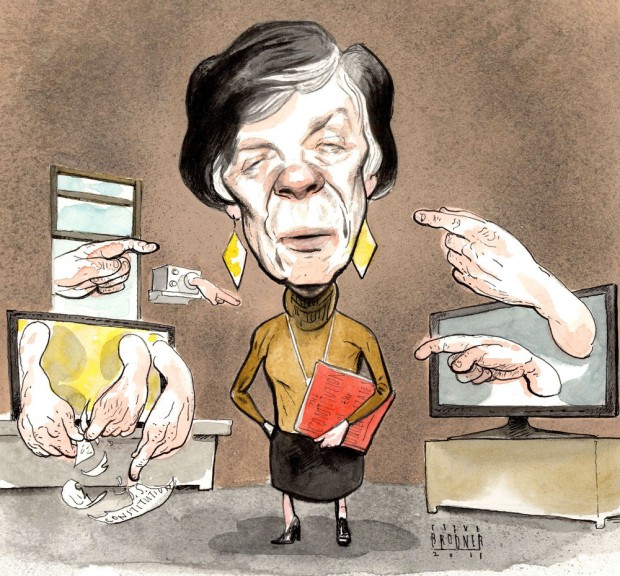Frances Fox Piven, author and scholar, is a recent victim of a new Glenn Beck paranoid fantasy, stating that she is the leader of a planned progressive takeover. The laughable clownish TV twit is not so funny; like other funny little men, he can marshal an army of other funny little men, who, together, can do very unfunny things. Silence is their greatest ally. The entire piece can be read at The Chronicle of Higher Education LINKED HERE. Ms. Piven clarifies what she has said in a Nation piece written in the ’60’s and how that was distorted by Beck. It is excerpted below.

Crazy Talk and American Politics: or, My Glenn Beck Story
By Frances Fox Piven
. . . According to Beck, I, together with my husband, Richard Cloward, with whom I
frequently collaborated before his death, am the proponent of a theory of
“orchestrated crisis” that lies behind an array of threats to American
society, including the emergence of Students for a Democratic Society,
Acorn, George Soros and the Open Society Institute, the New York City fiscal
crisis, the election of Barack Obama, and the recent financial meltdown.
The plan for all that is said to have been laid out in an article we
published in The Nation magazine in 1966 and, according to right-wing blogs
and those who post on them, the influence of our plan is evident everywhere
in American politics and public policy, but especially in the Obama
administration.
Online posters eagerly identify the connecting threads that depict me as
puppet master: I taught at Columbia University when Obama was a student
there, and I probably taught him. I spoke at a conference in the 1980s that
he probably attended. I was on Obama¹s transition team. Obama’s policies,
and especially health-care reform, are obviously a plan to implement my
crisis strategy.
None of that is true, of course. So what was this strategy that excites such
paranoid imaginings? The article we wrote in 1966 was based on research we
had done on the low receipt of welfare benefits by the eligible poor. The
research was inspired by our evaluation of the storefront services provided
by an early antipoverty program on the Lower East Side of New York City
known as Mobilization for Youth.
Our evaluation had shown that most of the troubles for which local residents
sought aid had to do with poverty. They could not pay the rent and feared
eviction, or they did not have cash to buy shoes for their children when
school opened. Through Mobilization for Youth, social workers helped them
apply for welfare benefits. So, we wondered, why were so many people in the
neighborhood who were eligible for welfare not receiving it? Perhaps there
was a widespread problem.



